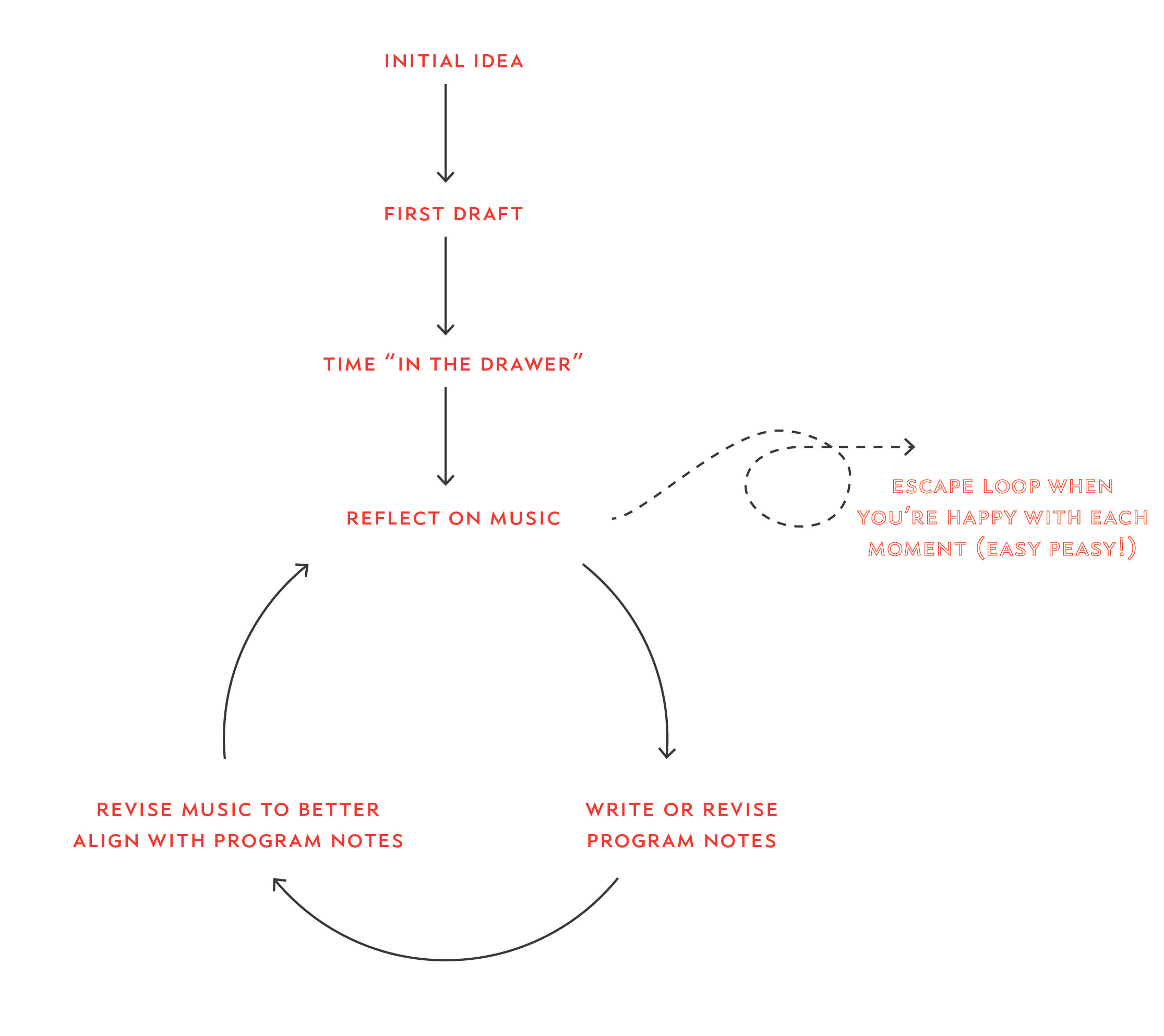Act, then reflect
The process of figuring out what the thing you're making is about
When I’m writing something, I only really have the vaguest idea of what the music is “about”.
For the first few notes of first draft, I’m usually just fascinated by a sound, a technique, or a melody and I let the music spin out from there; I stop writing when I’m no longer interested or it feels like some kind of journey or transformation has happened.
Then I usually put that draft away—for a week or a month or sometimes more. All the while something is happening in the back of my mind, making connections within the music.
When I come back to that initial draft, I’m usually able to see its shape and character much more clearly than when I was writing it.
It’s at this point that I write a drafty draft of program notes for the piece—the “what is this music about”. This becomes a north star for my revision process. When I’m making edits, in addition to checking in with myself to see how I’m experiencing the music moment to moment, I can also think about whether those edits are bringing me closer or further away from that north star—how can I make the music more itself? As I edit and review subsequent drafts, I go back to the program notes and refine them as the music tells me more about what it wants to be. Sometimes the music drifts from the initial course I was following and my north star begins to change too.
This has happened with several of my pieces:
My saxophone ensemble After the Bell used to be called Five for Eight. It actually took rehearsing and premiering the piece to figure out what it was about (summer memories from childhood), at which point I made some revisions to strengthen that impression/connection.
With Breathe, Set, Play, another piece for saxophone ensemble, I originally imagined I was writing something in the vein of Philip Glass. I named it Old Bottles, driven by the bible verse about new wine in old wine skins and the question “can new music fit within old forms and still have something to say worth listening to?”
Act, then reflect
As I wrote this, I realized I’m relying on some wisdom from Steven Pressfield quite a bit. A relevant excerpt from his book Do The Work:
Until now [, during the first draft phase], our motto has been “Act, Don’t Reflect.” Now we revisit that notion.
Now that we’re rolling, we can start engaging the left brain as well as the right. Act, then reflect. Act, then reflect.
Here’s how I do it:
At least twice a week, I pause in the rush of work and have a meeting with myself. (If I were part of a team, I’d call a team meeting.) I ask myself, again, of the project: “What is this damn thing about"?”
Keep refining your understanding of the theme; keep narrowing it down.
…Paddy Chayefsky famously said, “As soon as I figure out the theme of my play, I write it down on a thin strip of paper and Scotch-tape it to the front of my typewriter. After that, nothing goes into the play that isn’t on-theme.”
Have that meeting twice a week. Pause and reflect. “What is this project about?” “What is its theme?” “Is every element serving that theme?”


